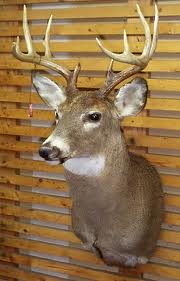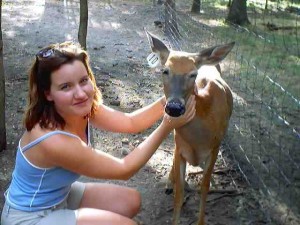Six members of Congress are urging federal agricultural officials to ban the interstate movement of captive deer, saying a national industry that breeds bucks to be shot as trophies in “canned” hunts isn’t worth the disease risks.
 In a letter sent Friday to Secretary of Agriculture Tom Vilsack and top USDA officials, the six Democrats cited an Indianapolis Star investigation this spring that uncovered case after case linking the captive deer industry to the spread of various diseases.
In a letter sent Friday to Secretary of Agriculture Tom Vilsack and top USDA officials, the six Democrats cited an Indianapolis Star investigation this spring that uncovered case after case linking the captive deer industry to the spread of various diseases.
“Considering USDA’s limited resources, it would be prudent for the agency to adopt a precautionary approach, consistent with its regulatory authority, and prohibit interstate transport of captive-bred cervids in order to quell the burgeoning threats the inhumane canned-hunting industry poses to the health of livestock, native wildlife and even humans,” the letter says. “Cervid” is the scientific name for deer.
At least 21 states already prohibit the importation of certain species of captive deer, fearing imported animals could infect wild herds with chronic wasting disease, an always-fatal deer disease similar to mad cow.
CWD has not been found in Indiana, which has about 400 deer farms, many of which ship deer in and out of the state.
 The Star’s investigation revealed that the 10,000 deer and elk farmers in the U.S. are shipping an unprecedented number of deer and elk across state lines to supply the burgeoning high-fence hunting industry. Deer and elk are bred for abnormally large antlers, some bigger than the established world record for wild animals. Top breeding stock can fetch six-figure prices.
The Star’s investigation revealed that the 10,000 deer and elk farmers in the U.S. are shipping an unprecedented number of deer and elk across state lines to supply the burgeoning high-fence hunting industry. Deer and elk are bred for abnormally large antlers, some bigger than the established world record for wild animals. Top breeding stock can fetch six-figure prices.
The Star’s investigation revealed that bovine tuberculosis has been found on 50 captive deer and elk herds, and researchers say they believe that in at least four instances the disease jumped from captive deer and elk to cattle. One such case was in Indiana.
The Star’s investigation also uncovered circumstantial evidence that the industry may have helped accelerate the spread of CWD, which has been found in 22 states.
